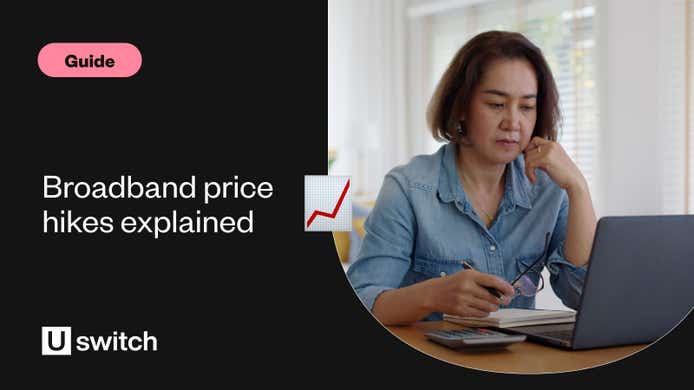A recent survey by Citizen’s Advice found that one million people cancelled their broadband subscriptions in the last year as they couldn’t afford the monthly payments. But it turns out many of these people could have actually been moved onto heavily discounted broadband deals instead.
Households on low incomes could be saving on their monthly bills by signing up to one of the social tariffs offered by a number of the UK’s major broadband providers – that is, if they even knew they existed.
Research from Ofcom earlier in the year revealed that 4.3 million people who were eligible to sign up for a discounted broadband deal had not done so. With just 5% of eligible households signing up, this works out at £824 million of support going unclaimed, or an average of £200 a year for every eligible home.
If you’re on Universal Credit and struggling with your bills, you could potentially sign up to one of these broadband social tariffs so you can save each month and don’t need to get behind in your bills in order to stay online.
The Citizens Advice survey of 6,000 people suggested those on Universal Credit were six times more likely to have cancelled their contracts in the last 12 months than non-claimants. This makes sense as Universal Credit claimants were also said to be four times more likely to be behind on their broadband bills.
However, internet access is now absolutely necessary in order to access all manner of essential services. Everything from applying for jobs, managing benefits and making an appointment with your GP – all of it is done online.
Citizens Advice included the example case study of 63-year-old Rob, who had been unable to afford broadband since 2012:
"Not having access at home means if I am applying for a job I need to give myself more time because the library is not open all day.
"I can't just think at 10pm, 'Let me go back to that application and finish filling it in.' It also limits me from accessing services like my GP, online help and shopping."
Dame Clare Moriarty, chief executive of Citizens Advice, said, "People are being priced out of internet access at a worrying rate. Social tariffs should be the industry's safety net, but firms' current approach to providing and promoting them clearly isn't working.
"The people losing out as a result are the most likely to disconnect."
What are broadband social tariffs?
Social tariffs offered by broadband providers can start from as little as £12 a month, giving those most in need access to online services, hopefully without falling behind on their bills.
These deals are widely available across the UK – with 99% of the country able to access some of them – and they offer a basic internet connection with speeds of anywhere from 15Mbps to 150Mbps, depending on your location.
Each provider has broadly similar eligibility requirements, with most accepting those on Universal Credit or Pension Credit, but you could also qualify if you’re receiving Disability Allowance or Personal Independence Payment.
In order to sign up, you’ll need to do so directly with your chosen provider who will assess your eligibility and set up your account.
You can read more about broadband social tariffs and get more details on who to contact and how to sign up with your dedicated guide.
If you’re not eligible but still want to cut down on your monthly bills, have a look at our range of cheap broadband deals currently available for £25 a month or less.





